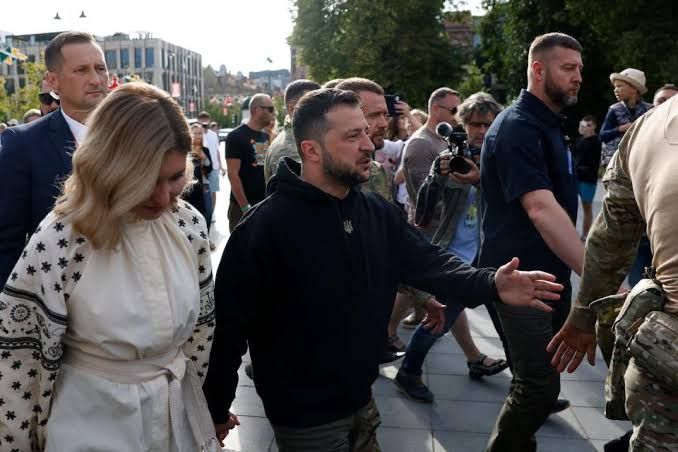"Cooling Down" Zelensky: The Backstage Diplomacy at the NATO Summit
Volodymyr Zelensky, the Ukrainian President, was on fire as he met with NATO leaders this Tuesday. His earlier frustrations over what he termed an “absurd” hesitation to provide Ukraine with a clear membership timeline had provoked the partners who had channeled billions of dollars in aid and weaponry to Ukraine&

Volodymyr Zelensky, the Ukrainian President, was on fire as he met with NATO leaders this Tuesday. His earlier frustrations over what he termed an “absurd” hesitation to provide Ukraine with a clear membership timeline had provoked the partners who had channeled billions of dollars in aid and weaponry to Ukraine's defense against Russian invasion.
According to sources, the situation escalated to such a degree that over dinner in Vilnius, the other leaders were compelled to give Zelensky a clear message - to cool down and consider the whole package. The Ukrainian President had received a renewed commitment to eventual NATO membership and new security guarantees from the Group of Seven nations. The following day, UK Defense Secretary Ben Wallace expressed the sentiment of the other leaders, stating that people expect gratitude when persuading nations to give up their stockpile of weapons and ammunition.
The overarching aim of the NATO leaders had been to carefully balance Ukraine's membership bid without the danger of inadvertently being drawn into war with nuclear-armed Russia. This tricky diplomatic dance was further complicated by the Ukrainian government's heightened expectations, fueled by the ongoing war.
Foreign Minister Dmytro Kuleba shared Ukraine's hope of receiving a formal invitation to join NATO at the summit, a position many diplomats felt was unrealistic given the geopolitical implications.
The US and Germany, in particular, were instrumental in moderating the commitment to Ukraine's joining the alliance. When the US President, Joe Biden, arrived in Vilnius on Monday evening, the language concerning the membership path was still being finalized.
In a twist of events, the Ukrainian team sent out a provocative tweet upon hearing that they wouldn't like the finalized text. This move captured the negotiators' attention, albeit counterproductively. The tweet irritated the Americans and necessitated intervention by the British and the Germans to de-escalate the situation.
When Zelensky arrived at the summit, he faced frank criticism from various leaders, who felt he had crossed the line. Many supporters of Kyiv expressed concern that the allies were repeating the same mistakes as in 2008, when a vague commitment to Ukrainian membership provoked Russia without providing sufficient protection against military aggression.
As Zelensky faced frosty interactions even in meetings with enthusiastic supporters like Rishi Sunak, the UK’s Prime Minister, the NATO community underscored the need for unity. By the time Zelensky addressed reporters around midday, his tone had shifted significantly. He expressed understanding and gratitude for the allies' steps, demonstrating an understanding of the bigger picture that was earlier urged on him.
Biden, in his speech, reaffirmed the US's commitment to supporting Ukraine, expressing optimism about the country's future NATO membership. This intricate dance of diplomacy underlines the precarious balance of managing national interests, international commitments, and the threat of war - a delicate balance that demands unity, patience, and, as Secretary Wallace said, gratitude.




